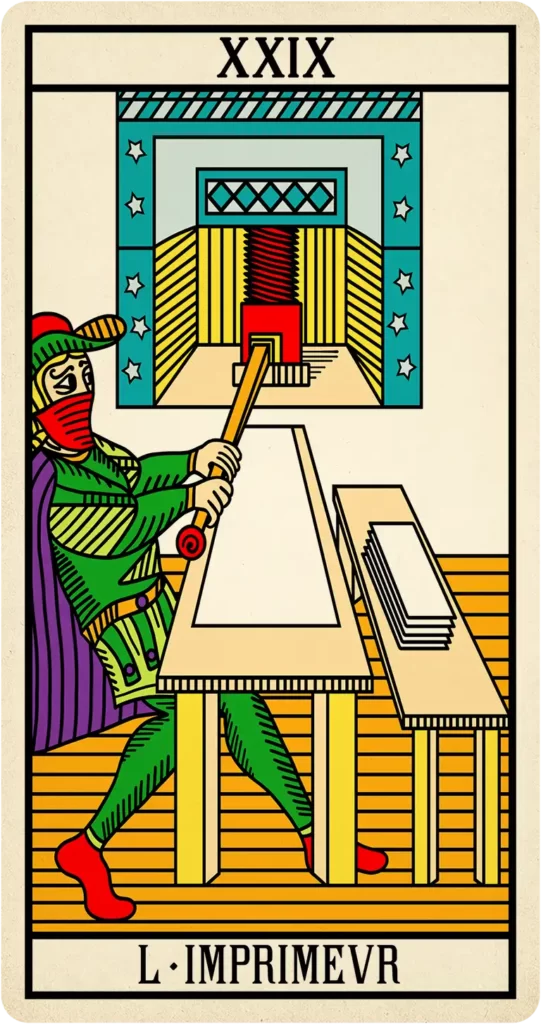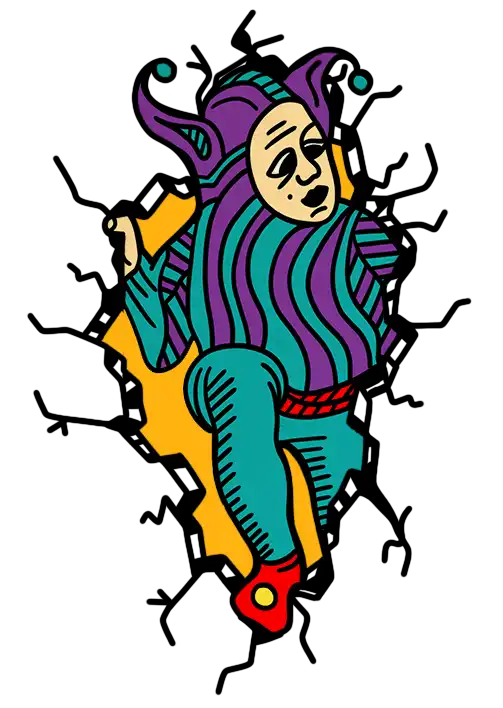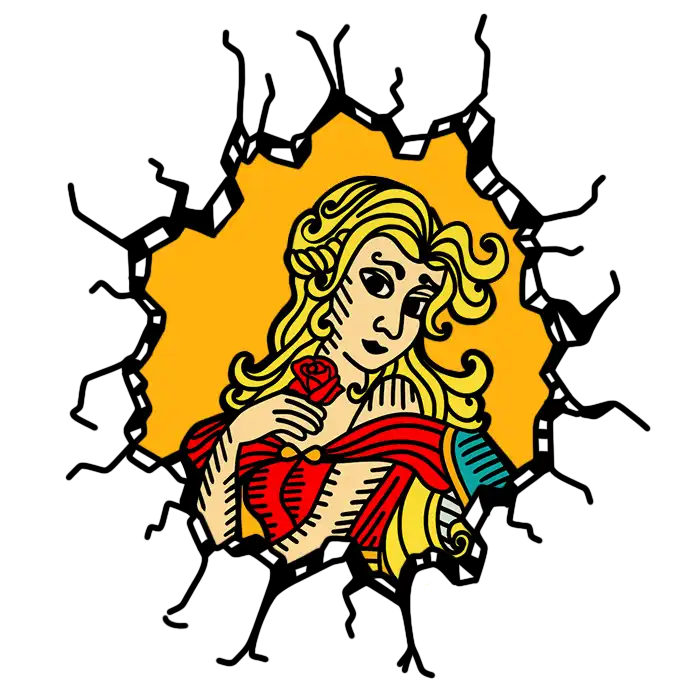
The printer
“The printing press is the great restorer of the moral and intellectual world.”
Translation
The name of this card is called “l’imprimeur” in French. It can be translated as “the printer” in English. If you notice any translation errors in this article, please let us know for our entire community. You can leave your comment at the bottom of this page.

Description
The printer is a card linked to memories, emotions, memory and therefore to our personal psychology. Our brain proceeds in 3 stages like the printer. The first consists of encoding which allows us to record new information from our 5 senses. This is a phase that depends on the proper functioning of the memory. We can acquire knowledge through learning or through experience. Learning is done with a master, while experience takes place in the school of life. Our printer engraves his acquisitions on the paper in ink. The ink can be indelible, erasable, secret, transparent, golden… It is the same for our paper: Embossed paper, glossy paper, blotting paper, velvet paper… All these nuances make the uniqueness and the singularity of each. Print quality depends on our ability to print correctly. The speed is an important notion. Printing fast is good. But is the quality there? Production tools change the impression. If you use the latest laser machine or a craft press, the result will be different. The production tool is also in our image. If we are sensitive to the work of the artist, we prefer the small quantity and the unique quality of the printed rendering. Others prefer the massification and concentration of many uniform documents. Everyone to his own tastes. Some print fast and some don’t. Encoding is all that.
Then comes,the second stage of storage. The printed paper must be stored in a place that allows us to find it easily. Thus, when we print too quickly, we accumulate too many documents to have time to store it properly. It quickly becomes unmanageable and we are overwhelmed. Finally, comes the last step, which is the recovery of our printed documents. To be able to restore an impression, we must find its arrangement. The famous “memory lapse” comes from the inability to locate this location in our workshop. To find this memory, we must appeal to clues, markers that allow us to find this impression.
An important expression concerning our emotions is “everything that is not expressed, is printed”. Once we are aware, the printer goes to work and some events imprint themselves in us. The problem is that it imprints without morality. He prints, because that is his job. He only transcribes our emotions to classify them.As far as he is concerned, the printer is emotionless. As such, he does not speak. The printer is therefore impartial. It acts! Complicated events will be stored like any other. In a workshop, bad articles do not get good press. And these same articles will sometimes come out during crises, conflicts or particular stimuli related to past events.
Keywords of the printer
Impartial
Acts
Memories
Unconscious
Accumulation
burnout
Fatigue
Memory
Ordered
Speed
Bad memories
Incapacity
Amoral
Without judgement
Productivity

I share this card with my friends





